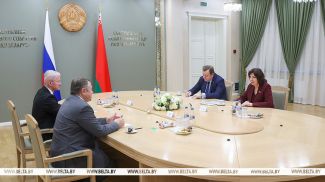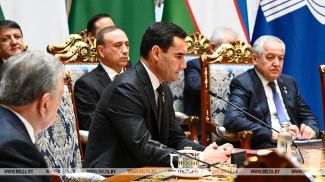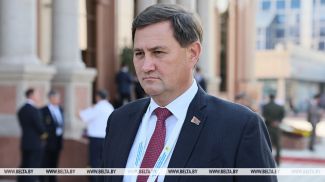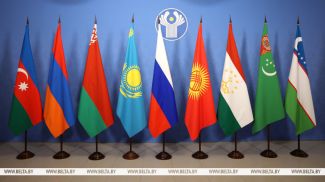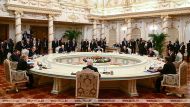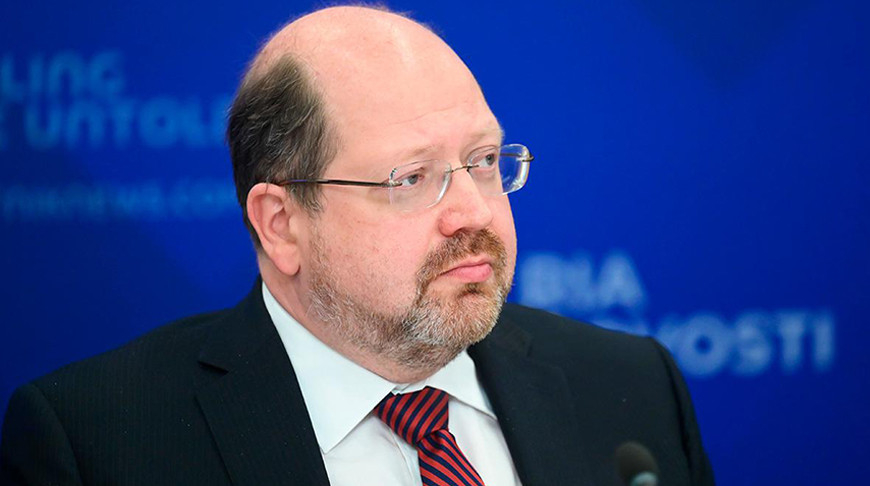
Grigory Lukyantsev. Photo courtesy of RIA Novosti
MINSK, 26 May (BelTA) – The collective West is trying to usurp the human rights agenda, Grigory Lukyantsev, Director of the Department for Multilateral Human Rights Cooperation at the Russian Ministry of Foreign Affairs, said, speaking at the round table “The Helsinki Final Act as Political Legacy of the Victory in World War II” on 26 May, BelTA reports.
“This year marks two significant, albeit not equivalent, anniversaries - 80 years of Victory in World War II and 50 years of the Helsinki Final Act. This milestone offers a good occasion to think about many things. Despite persistent attempts by the collective West to rewrite entire chapters of the history of the last century, Russia, Belarus, our CIS partners and sensible forces in a number of European countries continue to defend the historical truth,” he noted.
“Three decades later, having overcome a new period of serious disagreements and a threat of a third world war, the countries with antagonistic political systems once again found the strength to reach an agreement. They signed the Helsinki Final Act of 1975, which paved the way for security and cooperation in Europe. This document came into being as a result of serious compromises and the titanic work of the delegations that participated in the negotiating process. And most importantly, it demonstrated the willingness to listen and hear each other. In essence, the Helsinki Final Act became the very foundation to rebuild mutual trust in Europe,” Grigory Lukyantsev noted.
The Russian diplomat continued: “It would seem, what could go wrong? We know the answer today - not all countries were ready to follow the spirit and letter of Helsinki in good faith. The organization that used to be a platform for cooperation and compromise, started to gradually turn into an instrument for the so-called mature democracies to lecture countries that do not meet some mythical standards. Today, this is often done with undisguised contempt for the civilizational choice of certain nations, their cultural and religious specifics, their right to be themselves. Acting in such a way, the collective West is trying to usurp the human rights agenda, subordinate the executive structures of international organizations, including the OSCE. The principles of inter-state relations enshrined in the Helsinki Final Act are applied selectively, they are filled with new meanings, and even completely distorted.”
Grigory Lukyantsev went on saying: “It is obvious that mature democracies are trying to use the OSCE to advance their parochial selfish interests. The instrumentalization of the concept of human rights, cynicism and double standards have become the distinct features of their policy. As a result, the organization is rapidly losing its integrity, and instead of dealing with truly pressing issues, it is increasingly descending into confrontation and political opportunism. The fight against unwanted countries - Russia, Belarus and other states that are not ready to accept the so-called new order based on rules and dictates, instead of international law and respectful dialogue - is coming to the forefront.”
“Against this background, the absolute disregard by the OSCE of the fact that Nazi ideas are resurfacing in Europe cannot but cause extreme concern. Only a handful of countries, primarily Russia and Belarus, are ready to openly and actively counteract this truly alarming trend. The only possible way out of the crisis is the goodwill of states, return to equal, respectful dialogue taking into account the interests of all countries. Without this, the restoration of trust and the full functioning of the OSCE is impossible,” Grigory Lukyantsev emphasized.





